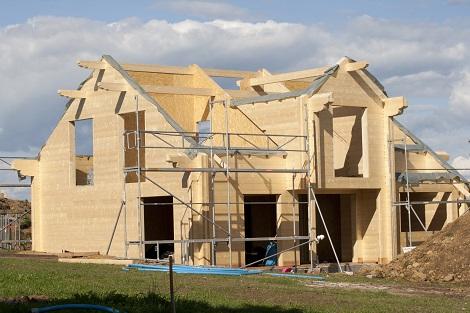Fannie Mae and Freddie Mac, the sponsored government enterprises that support the bulk of U.S. mortgages, are making it easier to buy a manufactured home, but observers say not enough of the public may be enticed.
A year ago, Fannie Mae debuted a program that essentially regards high-end manufactured homes the same as on-site homes when it comes to financing. Freddie Mac followed suit in the spring. Fannie and Freddie hope that by offering more readily available financing for prefab housing, similar to that of the conventional mortgage market, they can help more low- and middle-class Americans become homeowners.
But a consumer bias toward manufactured housing may be standing in the way.
“It’s the way of the future, but its not quite gotten there yet,” David Battany, executive vice president for capital markets at Guild Mortgage Co., told The Wall Street Journal.
Manufactured homes are constructed in a factory and then shipped for on-site installation. Loans for manufactured buyers often come with higher rates than traditional mortgages due to lenders’ perception of higher risks with this sector of housing. Fannie and Freddie’s programs are now backing manufactured homes at lower interest rates.
About 7.2% of the homes in the U.S. are manufactured homes, according to the Manufactured Housing Institute. The average cost is $72,000.
Jonathan Lawless, vice president of product development and affordable housing at Fannie Mae, told WSJ that the Fannie Mae product isn’t about volume but rather changing expectations. “We’re going to get to volumes, but given all that has to change, it is going to take a frustratingly long period of time,” he says.
Fannie and Freddie’s programs have some requirements that eligible manufactured homes must meet, such as having pitched roofs that make them look similar to site-built homes. The homes tend to cost between $150,000 and $250,000, which is also geared to the higher end of the sector, WSJ reports.
“It would be very good for America, in my view, if Freddie and Fannie did more in that area,” Warren Buffett said at Berkshire Hathaway HomeServices’ annual meeting in May. Buffett’s Berkshire Hathaway owns Clayton Homes, which sells about 42% of the manufactured homes in the U.S.
Home buyers Judy and James Kyer of Knoxville, Tenn., were the first buyers to close on a loan using the Fannie Mae program, purchasing a three-bedroom Clayton home for $195,900 located in a subdivision. “The Clayton home used to be so trailer-looking,” Kyer says. “That’s why we were surprised when we found out what kind of home it was. It didn’t have that look about it anymore.”
Source: “How Fannie and Freddie Prop Up America’s Favorite Mortgages,” The Wall Street Journal (June 20, 2019) [Log-in required.]













